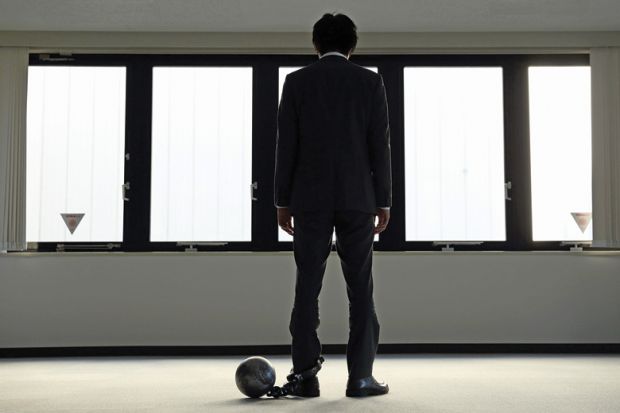People in glass offices
“It’s time those Edinburgh academics began to wake up and smell the coffee.”
That was the no-nonsense reaction of Louise Bimpson, the corporate director of our ever-expanding HR department, to the news that academic staff in the School of History, Classics and Archaeology at the University of Edinburgh had questioned the administrative decision to install glass panels in their office doors.
Ms Bimpson said that this was not the first time that Edinburgh academics had sought to stay out of sight. “I understand that in the past, the Edinburgh authorities have quite reasonably endeavoured to counter this predilection by requiring staff to alert colleagues if they leave ‘their normal place of work’ for half a day or longer. And when this proved inadequate, an injunction had apparently been issued requiring staff to display their physical presence by leaving their office doors open. It appears that only when this move also failed, the window in the door solution was introduced.”
“I quite appreciate”, added Ms Bimpson, “that academics working in such poor graduation destination disciplines as History, Classics and Archaeology might wish to keep a relatively low profile but these Edinburgh dons are seeking the type of invisibility normally associated with medieval hermitry.”
She did not envisage similar problems arising at Poppleton, which had long ago abolished not only tutorial offices and their attendant doors but also ensured that academics remained at their place of work by the adoption of an advanced ball-and-chain system of governance.
A disgusting smell
Work on campus was brought to an early close yesterday afternoon when staff found themselves affected by toxic fumes.
It was nearly an hour before the smell was traced to the workshop currently occupied by Wilfred Boner, our current Head of Estates and Gardens.
Mr Boner apologised for the fumes but pointed out that they had arisen during his team’s rapid preparation of a brass statue of Justine Greening, the new secretary of state with responsibility for universities.
Our reporter, Keith Ponting (30), asked Mr Boner to describe the source of the problem.
“It was basically overuse of the brass melting crucible. We’d barely melted down David Willetts than it was time to recast Jo Johnson. But the real trouble occurred during the casting of Ms Greening.”
“Trouble?” queried Ponting.
“Well,” explained Mr Boner, “Justine was fundamentally a quite different matter compared with two-brains David Willetts and ‘Better-not-change-anything-at-all-in-case-it makes-matters-worse-than-they-already-are’ Jo Johnson.”
“Fundamentally different?”
“That’s right. Ms Greening was not, like Dave, educated at a private fee-paying school founded in the 16th century or, like Jo, at an independent school in leafy Hampstead. She went to Oakwood Comprehensive School in Rotherham.”
“You mean to say?”
“Exactly. Although we pushed and shoved and pushed again there was simply no way Ms Greening would fit the existing mould.”
Register to continue
Why register?
- Registration is free and only takes a moment
- Once registered, you can read 3 articles a month
- Sign up for our newsletter
Subscribe
Or subscribe for unlimited access to:
- Unlimited access to news, views, insights & reviews
- Digital editions
- Digital access to THE’s university and college rankings analysis
Already registered or a current subscriber? Login




